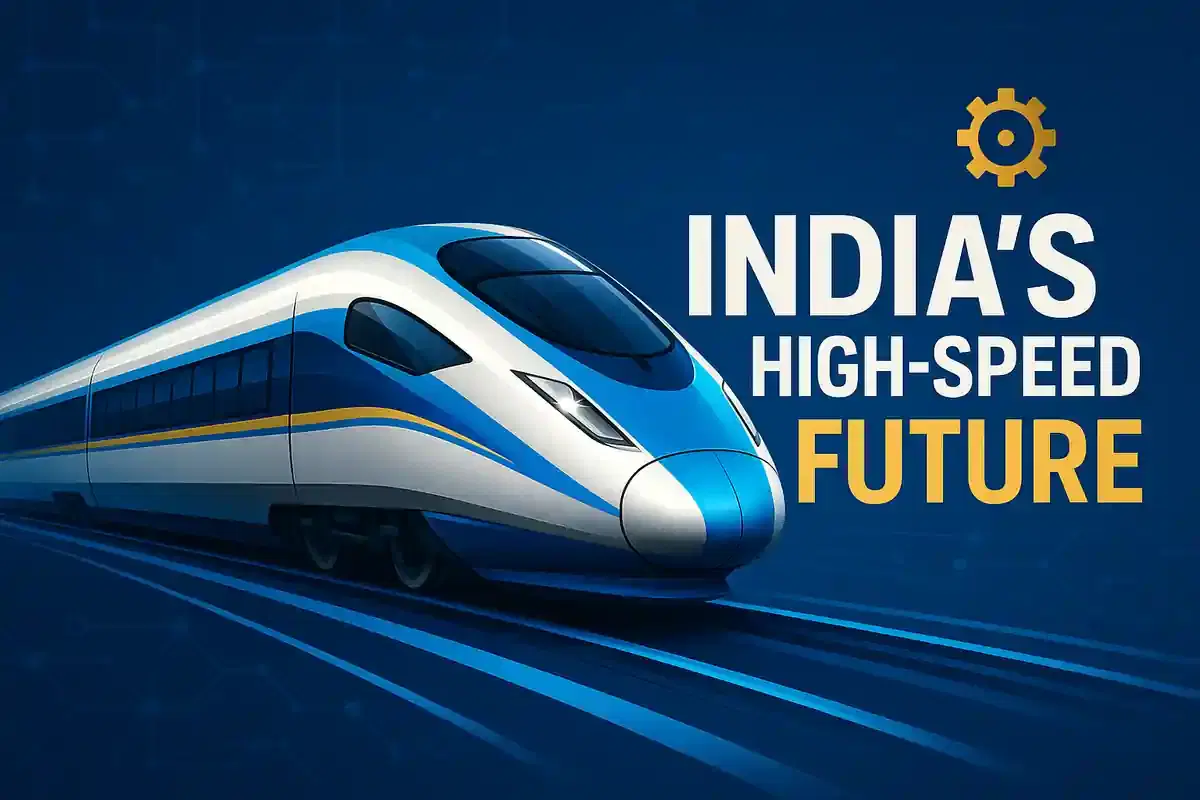Mumbai-Ahmedabad High-Speed Rail Shifts Strategy: India Eyes Indigenous Trains and European Signaling
Industrial Goods/Services
|
29th October 2025, 1:04 AM

▶
Stocks Mentioned :
Short Description :
Detailed Coverage :
The Mumbai-Ahmedabad High-Speed Rail (HSR) project, initially sanctioned at ₹98,000 crore with significant funding from Japan International Cooperation Agency (JICA), has faced numerous delays and cost escalations, nearly doubling the expense to ₹2 lakh crore. Recent developments indicate a strategic reorientation by Indian Railways. Citing exorbitant pricing from Japanese suppliers for trains and signaling systems, the National High-Speed Rail Corporation Ltd (NHSRCL) is now prioritizing indigenous solutions. India plans to develop its own 280 kmph train, with operational readiness anticipated by 2028, albeit initially at 250 kmph. Furthermore, the signaling contract has been awarded to a Siemens-DRA Infracon joint venture for a European system, expected to be operational by 2029 at a significantly lower cost than the Japanese alternative. Even tunnel-boring machines delayed in China have arrived. This move signals a push for technological independence and aims to make future HSR corridors more economically viable and faster to implement, targeting 7,000 km of dedicated passenger corridors by 2047.
Impact This strategic shift could lead to substantial cost savings on future HSR projects, foster domestic manufacturing capabilities, and create a more competitive landscape for high-speed rail technology in India. It addresses concerns about over-reliance on single foreign partners and promotes innovation within Indian engineering and manufacturing sectors. The progress, despite challenges, indicates a determined effort to advance India's infrastructure. Impact Rating: 7/10
Difficult Terms: High-Speed Rail (HSR): A type of rail transport that operates significantly faster than conventional rail, typically over 250 km/h (160 mph). JICA (Japan International Cooperation Agency): Japan's governmental agency that provides financial and technical assistance for development projects in developing countries. NHSRCL (National High-Speed Rail Corporation Ltd): The public sector undertaking responsible for implementing India's high-speed rail projects. Shinkansen: The Japanese bullet train system, known for its speed and punctuality. Tunnel-Boring Machines (TBMs): Large mechanical devices used to excavate tunnels underground. BKC (Bandra-Kurla Complex): A prime business district in Mumbai. Siemens-DRA Infracon JV: A joint venture between Siemens and DRA Infracon for implementing the signaling system. Viaducts: Long, elevated structures, typically bridges, that carry a road or railway over land or water. Piers: Vertical supporting structures for bridges or viaducts. Indigenous: Developed or produced in one's own country.